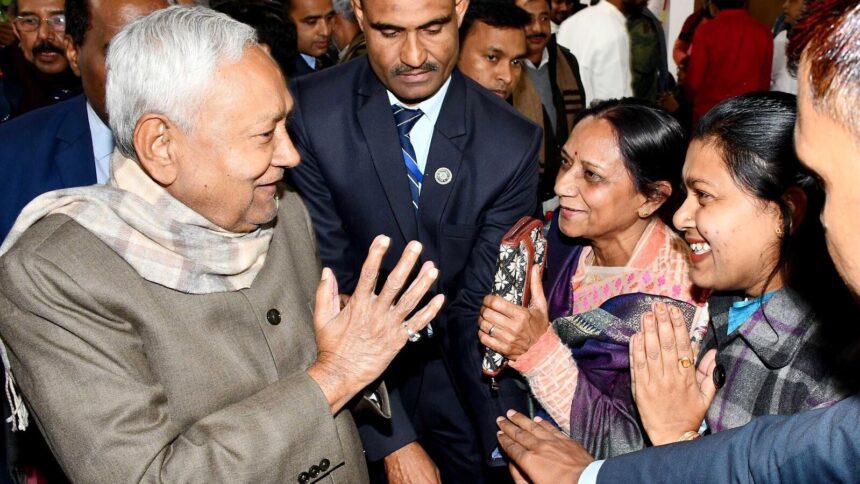A Political Shift in Bihar: Lalu Prasad Yadav’s Invitation to Nitish Kumar
In recent developments in Bihar’s political landscape, Rashtriya Janata Dal (RJD) President Lalu Prasad Yadav urged Bihar Chief Minister Nitish Kumar to reconsider his position and return to the opposition fold. This call emerges amidst a backdrop of ongoing political tensions and public expectations regarding governance in the state.
The Invitation from Lalu Prasad Yadav
On a significant day for Bihar’s politics, Lalu Prasad Yadav expressed his sentiments publicly, stating, “Our doors are open (for Nitish). He should also unbolt his gates.” This statement encapsulates a broader plea for cooperation among opposition parties to create a more unified front against the ruling coalition. By encouraging Nitish Kumar to join the opposition, Yadav aims to rejuvenate and strengthen the political dynamic in Bihar. He further emphasized that this collaboration could lead to smoother interactions between different political factions, suggesting a metaphorical ‘movement of people from both sides.’
Tejashwi Yadav’s Downplayed Response
While Lalu’s statement garnered media attention, his son Tejashwi Yadav, a prominent RJD leader, chose to downplay his father’s remarks. He argued that Lalu’s comments were simply a means of addressing the media’s incessant questions, suggesting that his father’s expressions held little actionable weight. Tejashwi pointed out, “What would he do if people like you keep coming to him with the same question? Whatever he said must have been aimed at putting an end to the curiosity of you journalists.” This response indicates an awareness of the media’s role in shaping political narratives and reflects a strategic approach to public communication within the party.
Nitish Kumar’s Non-Committal Reaction
Chief Minister Nitish Kumar’s reaction to Lalu’s invitation was notably cryptic. When pressed by journalists on the matter during a ceremonial event, he simply folded his hands, smiled, and asked, “Kya bol rahe hain (What are you saying)?” This non-responsive demeanor suggests a reluctance to engage directly with the proposition, instead opting for a vague acknowledgment that leaves the door open for interpretation while maintaining his current political stance.
Perspectives from the Ruling Coalition
In response to the unfolding situation, union minister and former Janata Dal (United) [JD(U)] president, Lalan Singh, reiterated the strength of the National Democratic Alliance (NDA), asserting a united front between JD(U) and BJP. He stated, “It is a free society and anybody can say whatever he pleases. It is for Lalu ji to say more on his own utterances.” This remark indicates that while opposition rhetoric may suggest potential fractures, the ruling coalition remains confident in its alignment.
Broader Political Implications
The exchanges and comments from key political figures in Bihar point toward a broader trend in Indian politics—the shifting alliances and the dynamic nature of party politics, particularly in the context of regional parties and their influence on governance. Lalu’s invitation highlights ongoing sentiments in the opposition camp regarding collaboration to counterbalance the ruling coalition’s policies and governance style.
Meanwhile, Tejashwi Yadav has been vocal about his vision for Bihar’s future, pledging significant reforms by 2025—aiming to address critical issues like unemployment and migration. He articulated a vision for a government that prioritizes education, health, and restructuring bureaucratic processes, thus fostering a more progressive environment for the people of Bihar.
Conclusion
As Bihar approaches crucial political milestones, including upcoming elections, the interplay between Lalu Prasad Yadav’s invitations and the responses from Nitish Kumar and other political figures will be pivotal in shaping the state’s future. Political analysts will be keenly observing whether discussions will evolve into actionable strategies or remain mere rhetoric in the complex tapestry of Bihar’s political discourse. The next steps in this political narrative could set the tone for governance and public sentiment in Bihar for years to come.










